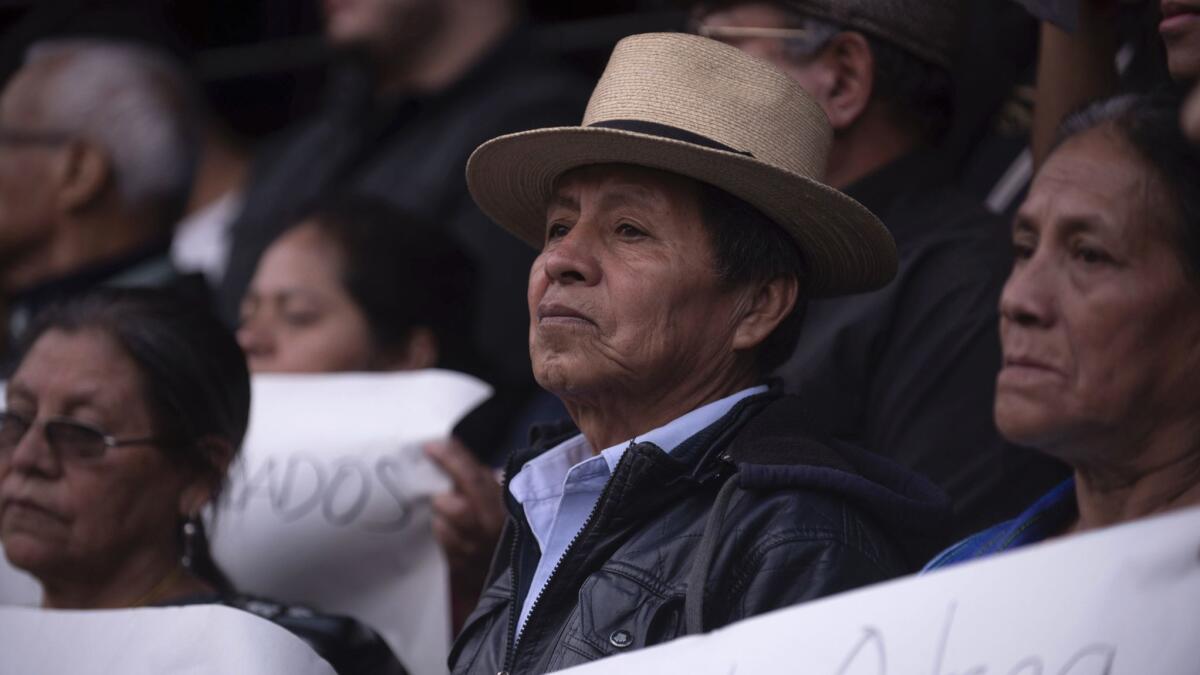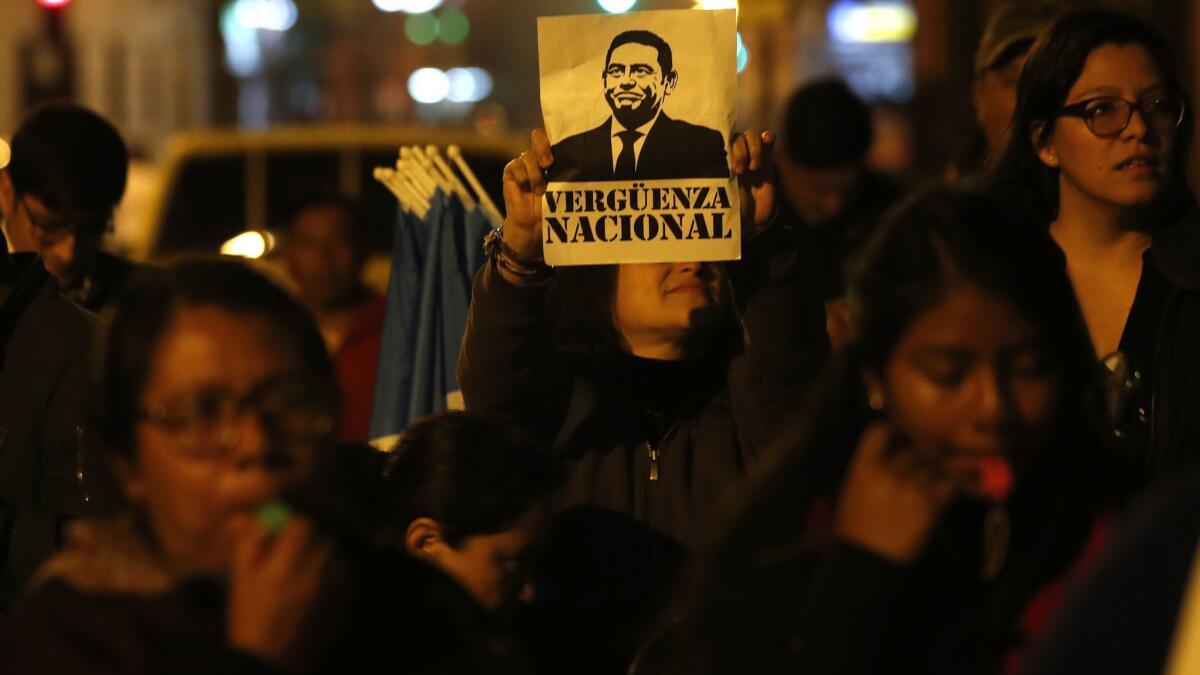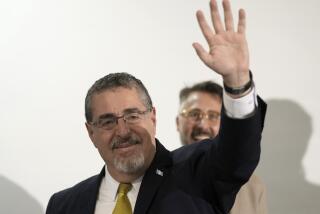Crisis builds in Guatemala as its legislature seeks to impeach judges

Guatemala’s political crisis deepened Thursday as efforts mounted to impeach several judges on the country’s highest court who have repeatedly ruled in favor of a controversial anti-corruption commission that the president has sought to expel.
Guatemala’s Congress, much of which is allied with President Jimmy Morales, will now decide whether three members of the Constitutional Court should be stripped of their judicial immunity. If that happens, the judges could be removed from the court altogether.
Civil society groups quickly condemned what they described as an attack on the independence of Guatemala’s judicial branch, with several describing recent political developments there as a “soft coup.”
“In countries with developed democracies, the decisions of the courts are obeyed,” the Guatemalan human rights group Myrna Mack Foundation said in a statement.“Their decisions are final and must be respected by all people, both leaders and civilians, without any objection.”
The Constitutional Court has drawn the ire of Morales and other Guatemalan leaders for consistently ruling in favor of the United Nations-backed International Commission Against Impunity in Guatemala.
It has blocked several attempts by Morales to undermine the commission, which was formed in 2006 to conduct independent investigations into corruption, drug trafficking and other crimes. For the last two years, the commission has been investigating Morales for possible illegal campaign financing. The commission, known as the CICIG, is also investigating the president’s brother and son as well as several members of Congress.

Last year, Morales sought to deny the head of the commission, Colombian jurist Ivan Velasquez, entry into Guatemala. His efforts were overturned by the Constitutional Court, which found that Velasquez had a right to be in the country and continue his work.
On Wednesday, the court blocked a new effort by Morales to expel the commission altogether.
Congress has made multiple requests to impeach the three members of the Constitutional Court who have consistently supported the CICIG.
Guatemala’s Supreme Court rejected several of those requests, but on late Wednesday accepted one that will allow Congress to move forward with impeachment hearings. The request relates to the Constitutional Court’s ruling last year that Morales did not have the authority to expel the Swedish ambassador to Guatemala. The ambassador had championed Swedish investment in the CICIG.
A spokesman for Guatemala’s Supreme Court, Mario Siekavizza, said Thursday that the court had approved impeachment proceedings in that case “because the Constitutional Court exceeded its functions.”
It was unclear exactly when Congress would begin the impeachment hearings.
As the legal conflict played out in the courtroom, there were increasing fears that tensions could spill into the street. Protesters on both sides of the issue have gathered in Guatemala City in recent days, including outside the Constitutional Court.
Guatemala’s Rafael Landívar University is one of several institutions that has called for peace.
“We reject the polarization that, taken to its extreme, will result in violence,” the university said in a statement. “We deeply regret the open confrontation between the current government and legitimately constituted state agencies that endanger the already fragile rule of law in the country.”
In the United States, which played a key role in creating the anti-corruption commission, several members of Congress called on the Trump administration and international bodies to intervene.
The “international community must closely monitor [the] slow motion constitutional crisis,” tweeted Rep. Eliot L. Engel (D-N.Y.), who chairs the House Foreign Affairs Committee.
Twitter: @katelinthicum
More to Read
Start your day right
Sign up for Essential California for news, features and recommendations from the L.A. Times and beyond in your inbox six days a week.
You may occasionally receive promotional content from the Los Angeles Times.







